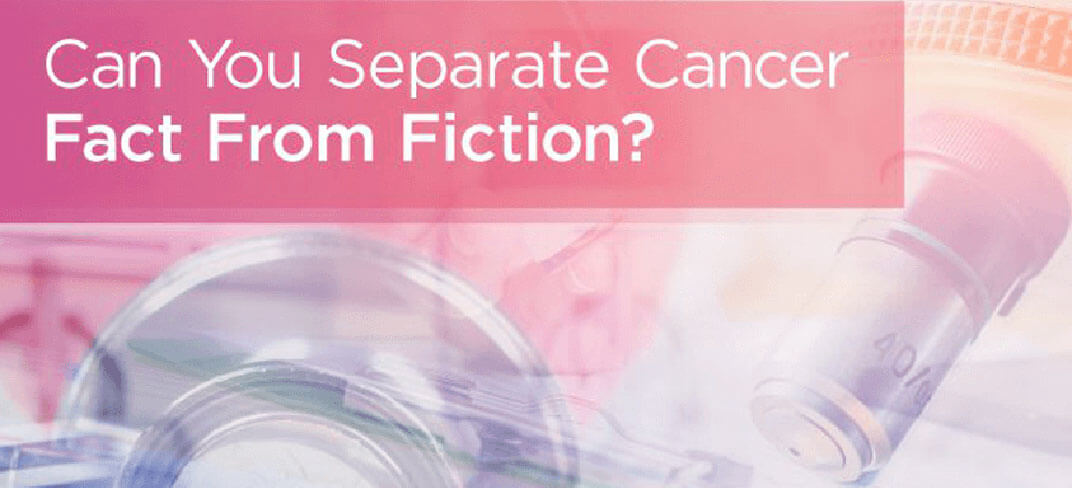Separating Cancer Fact from Fiction

More than 32,000 people in Ireland and millions worldwide are diagnosed with cancer every year. Most of us probably know someone who has — or had — cancer. However, myths and misunderstandings about the disease persist. In honour of World Cancer Day 2021, here are some facts and common misconceptions you should know.
Fact: Cancer is a blanket term for many illnesses, not just one.
Cancer refers to cells that rapidly divide and spread, damaging tissues and organs. According to the Irish Cancer Society, there are over 200 different types of cancer, each with a specific name, treatment, and chance of being cured. Even cancers that begin in the same part of the body, such as breast cancer, can look drastically different from person to person. That’s why everyone’s treatment plan is unique.
The main types of cancer include carcinoma, sarcoma, and blood cancers. While carcinomas and sarcomas involve cells growing to become tumours, the abnormal cells in blood cancers build up in the bone marrow or blood. All cancers can affect the way your body normally works and cause symptoms.
Fiction: Patients always lose their hair or feel terrible when undergoing treatment.
Just because a patient is undergoing treatment for their cancer diagnosis does not mean they will feel terrible — treatments have advanced a lot in the past few decades.
Many newer medicines associated with chemotherapy don’t cause severe nausea and vomiting. And other drugs can be used to help control these negative side effects. Hair loss also depends on the type of medicines you take.
Radiotherapy can offer an alternative to chemotherapy by using highly targeted radiation to control tumour growth while minimising exposure to the surrounding normal, healthy tissue. This method can sometimes cause fewer side effects than chemotherapy.
Cancer treatments, including chemotherapy, are available at UPMC Whitfield Hospital. If you need radiotherapy, ask your GP to refer you to UPMC Hillman Cancer Centre at UPMC Whitfield Hospital or Bon Secours Radiotherapy Cork.
Fact: Your lifestyle can help lower your cancer risk.
The HSE offers several ways to reduce your cancer risk. These include:
- Stopping smoking
- Using sunscreen
- Maintaining a healthy weight and
- Limiting alcohol intake
Fiction: You’re not at risk of getting cancer unless you have a family member who has had it.
Though you may have a higher risk of developing cancer if you have a family history of cancer, only about 5% to 10% of cancers are clearly linked to a genetic cause.
Some risk factors include having a close relative diagnosed with two separate cancers or two or more relatives on the same side of your family diagnosed with the same cancer. Whether you have a family history of cancer or not, you should be diligent about their annual checks and self-screenings.
Fact: Cancer is not contagious
Some viruses that cause cancer, such as human papillomavirus (HPV) or hepatitis B or C, can be transmitted through unprotected sex or sharing needles. But cancer itself is not something you can catch from another person.
Fiction: Cancer is fatal.
People are living long, healthy lives with cancer — and after cancer. The Irish Cancer Society notes that about 170,000 people are living with and beyond cancer today in Ireland. Survival rates have continued to increase thanks early detection, quality treatment and survivorship care.
Having the right care from consultants you trust can make all the difference when battling cancer. Advances in treatment and research from institutions like UPMC Hillman Cancer Centre mean we understand more than ever before about the disease. And that has led to a steady improvement in outcomes.